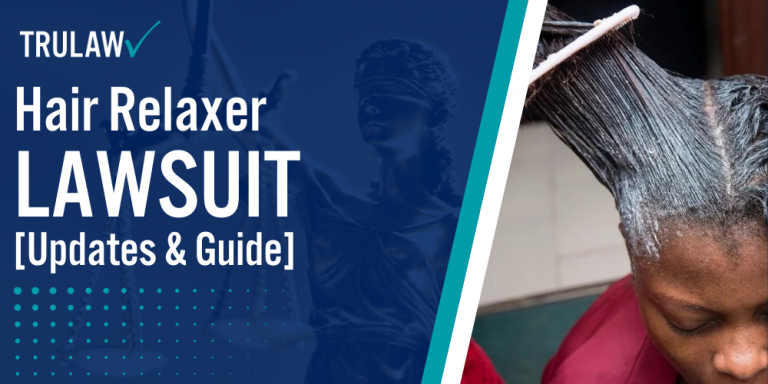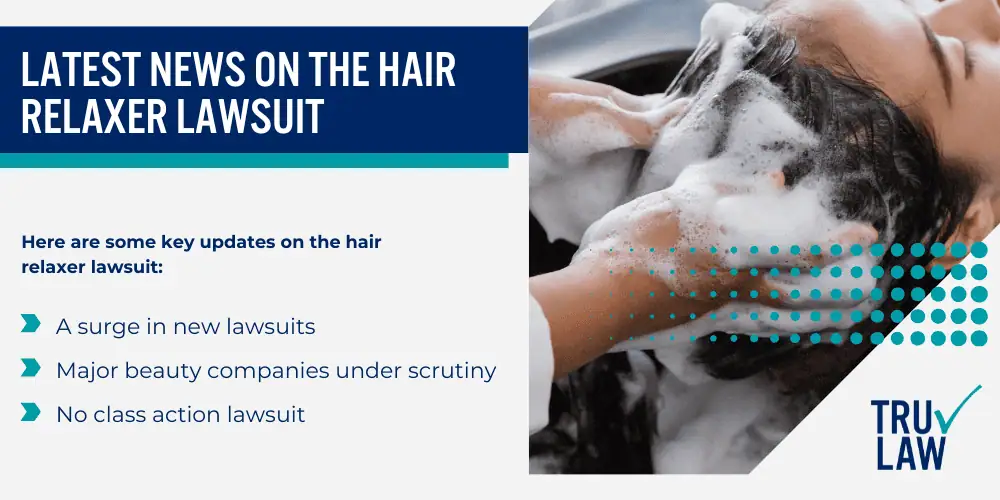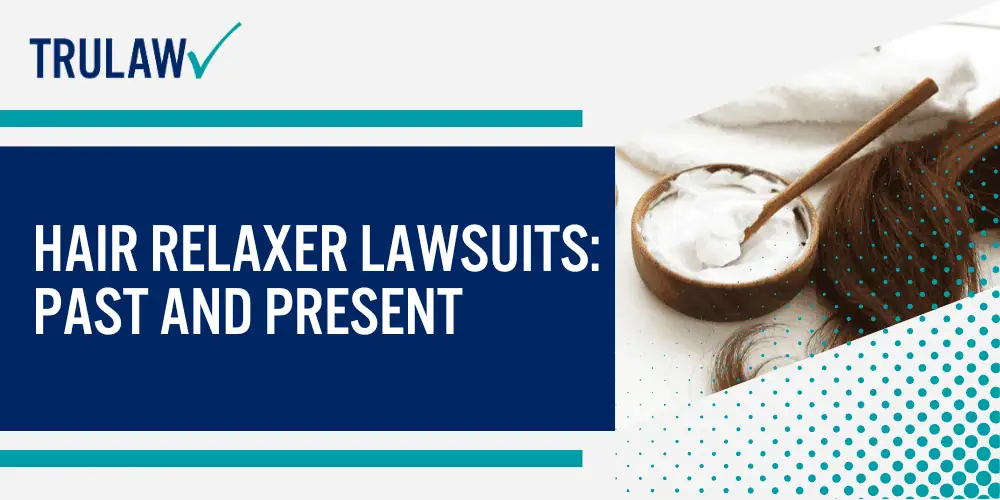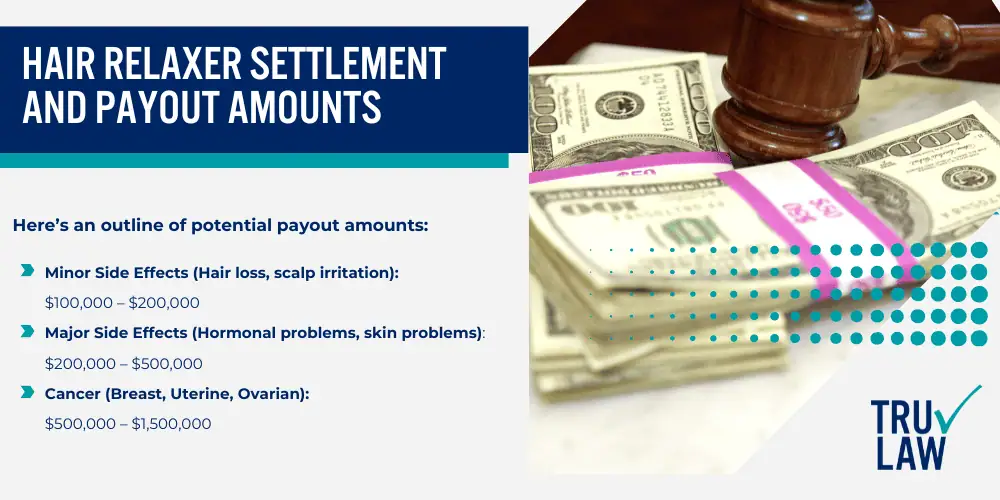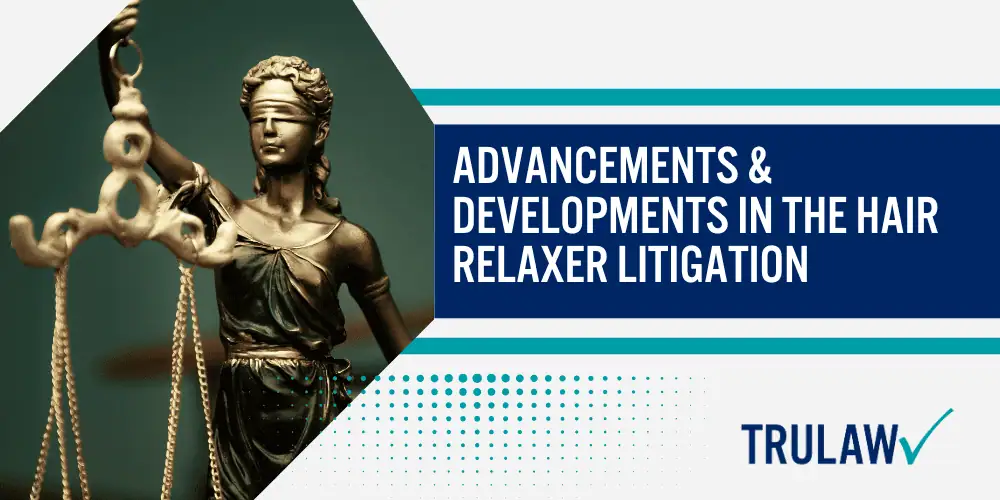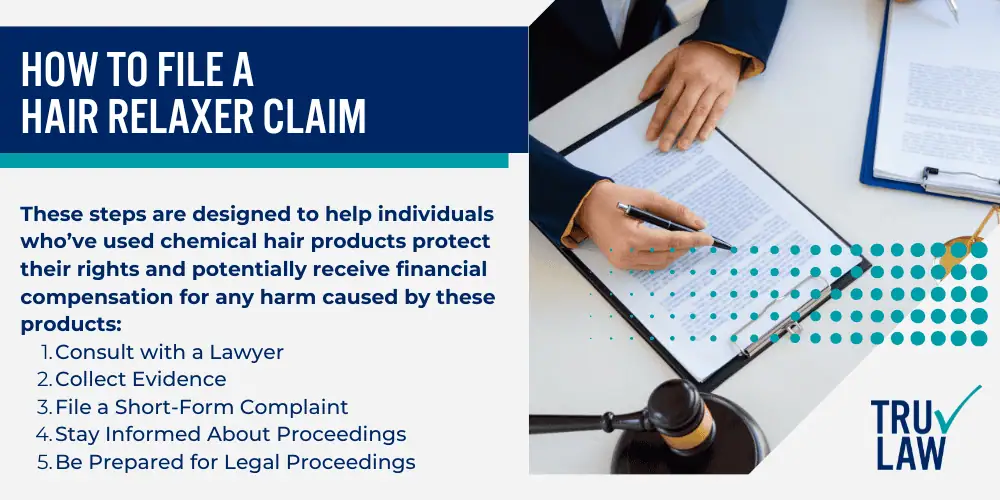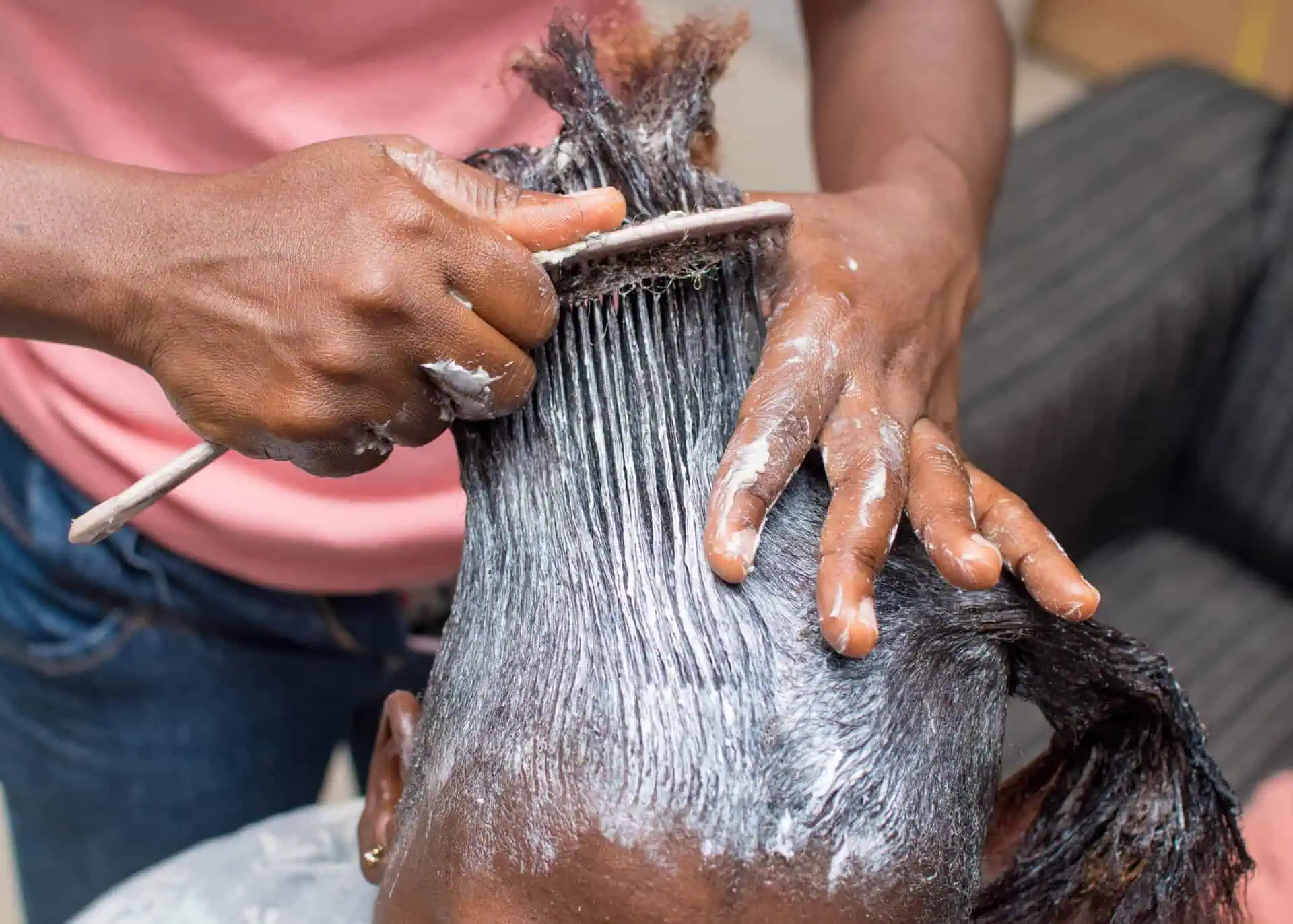Numerous studies and mounting lawsuits have highlighted the potential link between the use of hair relaxers and an increased risk of developing certain types of cancers, including uterine and ovarian cancer.
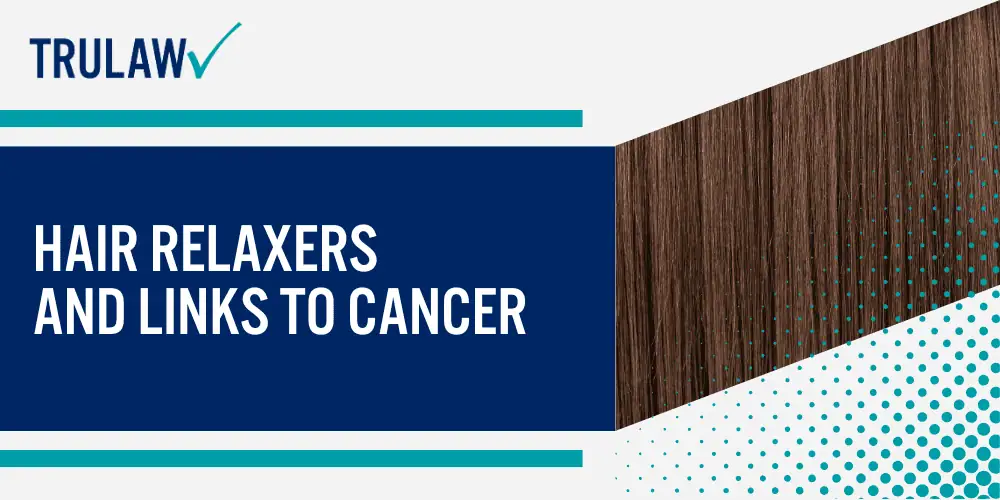
Chemical Hair Relaxers: Uterine Cancer
Scientific research suggests a correlation between certain chemicals in hair relaxers and an increased risk of uterine cancer.
Lye-based relaxers, as well as no-lye alternatives that contain endocrine-disrupting compounds, pose potential health hazards.
These disruptive substances can interfere with the body’s hormonal system leading to significant adverse health effects such as uterine cancer.
Regular use of these products is particularly concerning for African American women who are disproportionately represented in related statistics.
The link between chemical hair straighteners or relaxers and higher rates of this type of malignancy adds another layer to the ongoing investigations into personal care product safety concerns.
Mounting evidence has resulted in numerous lawsuits being filed against cosmetic companies offering these suspect hair-relaxing products.
Hair Relaxer Can Cause Ovarian Cancer
Scientific research links consistent use of lye-based hair relaxers to a heightened risk of ovarian cancer.
Such products contain powerful alkaline chemicals, like sodium hydroxide.
Their main purpose is to permanently break down the protein structure in curly hair, providing a smoother texture. However, these agents aren’t exclusive to lye-based treatments.
No-lye relaxers also carry harmful ingredients that pose serious health threats.
For instance, calcium hydroxide and guanidine carbonate merge to form guanidine hydroxide once applied – an alkaline as corrosive as those found in lye variants.
These substances penetrate deep into the scalp with each application, potentially tying them to various complications beyond hair damage like scalp burns and irreversible alopecia — ovarian cancer being one severe implication regularly investigated by experts across health and cosmetic fields today.
Thousands of black women are coming forward with claims that prolonged use of these chemical hair products has directly contributed to their cancer diagnoses.
The specific chemicals in hair relaxers, such as endocrine-disrupting compounds, are now under scrutiny for their significant adverse health effects.
Stay informed about this critical issue impacting countless individuals who’ve trusted these products as part of their beauty routines.
Minorities Affected at Higher Rate
Rates of these types of cancers are significantly higher among black women and other minority groups.
These disturbing revelations have sparked outrage and concern amongst users worldwide, pushing many into legal battles.
There’s an ever-growing body of evidence suggesting lye-based relaxers significantly increase cancer risk, while even “no-lye” options contain harmful substances associated with detrimental health outcomes.
African American and Latina women have filed lawsuits alleging that regular application of these straightening agents has directly contributed to their diagnosis of ovarian or uterine cancer.
